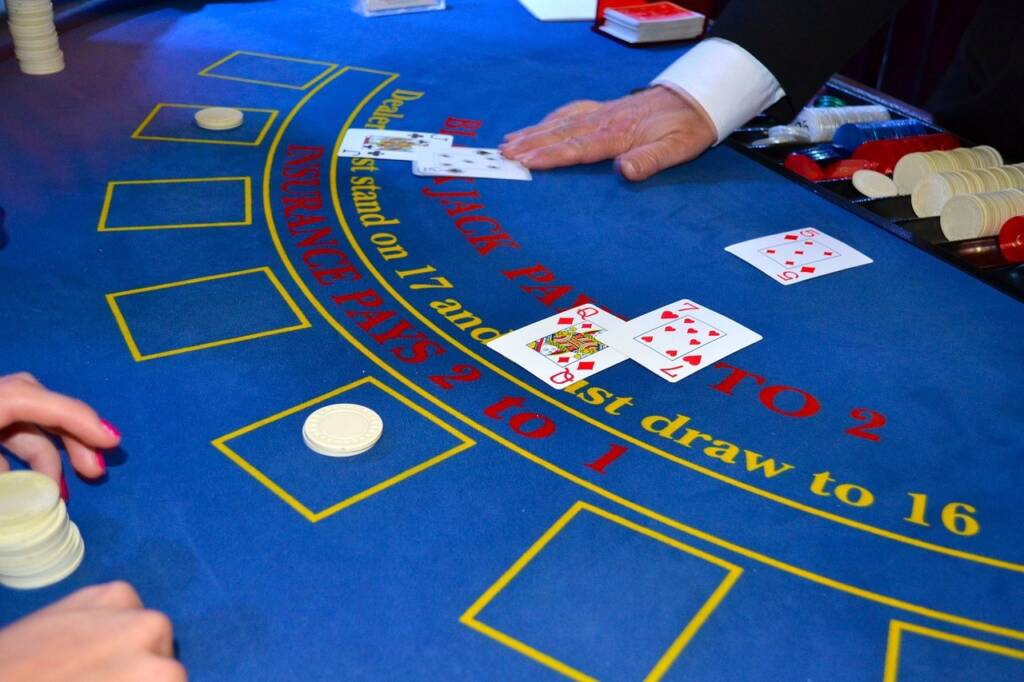Many players experience common pitfalls that lead to costly mistakes when playing casino games. These errors can happen for various reasons, whether emotions take over, poor bankroll management, or simply misunderstanding the game’s rules. Unfortunately, some of these mistakes occur because of misconceptions that can affect their casino gameplay.
This misconception is called fallacy. It’s players’ belief that previous outcomes can somehow influence future results in games of chance. This flawed reasoning can distort their judgment, leading them to make decisions based on false expectations. While it may seem insignificant initially, its impact can become substantial as players begin relying on patterns that don’t exist, ultimately resulting in poor choices and potential losses over time.
In this article, we’ll focus on one specific fallacy called the gambler’s fallacy and its effects on blackjack.
What’s Gambler’s Fallacy?
The gambler’s fallacy is believing that past random events can somehow affect future outcomes. For instance, a player might think they are “due” for a win after a string of losses. This misconception is based on the idea that probability corrects itself over time, leading players to expect outcomes to balance out.
However, in reality, each event in games of chance, such as a coin flip or a hand of blackjack, is entirely independent. The odds don’t change based on previous results. Whether the coin has landed heads five times in a row or a player has lost several hands of blackjack, the following outcome still has the same probability as before.
How Does It Affect Blackjack?
In blackjack, Gambler’s Fallacy can cause players to make irrational decisions. Blackjack players often feel that after a string of bad hands, the deck “owes” them a winning hand. This leads to riskier behavior, such as increasing their bets after losses, hoping that a big win is just around the corner.
In Live Blackjack, the fallacy is just as dangerous, if not more. Because the game unfolds in real-time, players might mistakenly believe that they can “read” the dealer’s patterns or predict the flow of the cards.
The interaction with a live dealer can make players more convinced that previous rounds are somehow influencing the current one. Like in land-based blackjack, this can result in rash decisions, such as over-betting or changing strategies mid-game, based on perceived patterns that simply aren’t there.
The Risks of Betting on Gambler’s Fallacy
One of the significant risks of falling into the gambler’s fallacy is losing control over betting habits. When players start believing that past results can influence future outcomes, they might start betting recklessly. For example, after a losing streak, a player might begin doubling their bets to chase a win, leading to even larger losses if that win doesn’t come.
Another risk is being emotional. Blackjack can be a fast-paced game, and players influenced by the gambler’s fallacy may experience frustration, anxiety, or even desperation when their expectations don’t match reality. This emotional strain can further cloud judgment, causing players to make even more irrational decisions.
Does It Have Any Advantage?
At first glance, the gambler’s fallacy seems completely harmful. It clouds judgment and encourages poor decision-making. However, some might argue that, on rare occasions, it can work to a player’s advantage.
For instance, believing that a win is coming after a string of losses might encourage a player to stick around longer rather than quitting early. In very rare cases, this persistence could result in a win, especially if two events are causally related.
But it’s important to note that any perceived advantage is purely coincidental. Relying on a fallacy to guide gameplay is not a sound strategy and often leads to greater losses than wins. Blackjack is a game where skill, strategy, and discipline pay off much more than wishful thinking or relying on flawed logic.
Staying Clear of the Fallacy in Blackjack
The key to avoiding the gambler’s fallacy is recognizing it when it arises. Players need to remind themselves that every blackjack hand is independent. A string of losses doesn’t mean a win is guaranteed, just as a string of wins doesn’t mean a loss is around the corner. The deck has no memory, and each card dealt results from pure chance.
To avoid falling into this mindset, players should stick to proven strategies. Systems like basic blackjack strategy charts or other strategic methods can help guide decision-making, keeping emotions and superstitions at bay. Additionally, setting a betting limit and sticking to it can prevent the reckless behavior that often comes with the gambler’s fallacy.
Final Thoughts
In conclusion, while believing that a winning streak is just around the corner after a few losses is tempting, the gambler’s fallacy is nothing more than a deceptive mindset. To play blackjack effectively, it’s crucial to stay grounded in logic, practice sound strategies, and understand that each hand is independent of the last.
